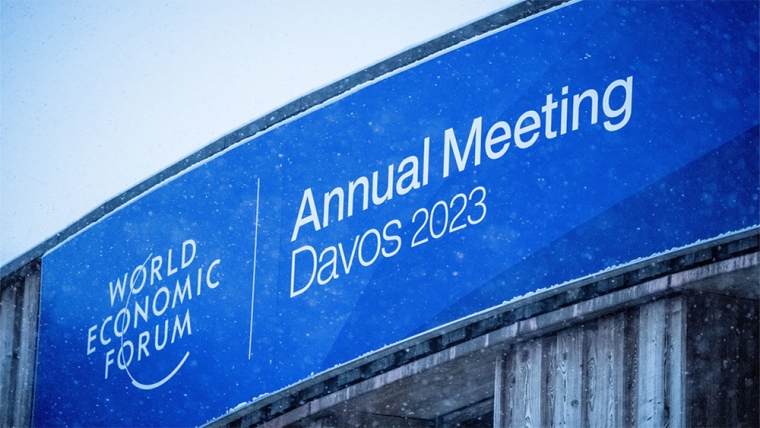
By Nouriel Roubini*
A host of interconnected “megathreats” is imperiling our future. While some of these have been long in the making, others are new. The stubbornly low inflation of the pre-pandemic period has given way to today’s excessively high inflation. Secular stagnation – perpetually low growth owing to weak aggregate demand – has evolved into stagflation, as negative aggregate supply shocks have combined with the effects of loose monetary and fiscal policies.
Where once interest rates were too low – or even negative – they have now been rising fast, driving up borrowing costs and creating the risk of cascading debt crises. The age of hyper-globalisation, free trade, offshoring, and just-in-time supply chains has yielded to a new era of deglobalisation, protectionism, reshoring (or “friend-shoring”), secure trade, and “just-in-case” supply-chain redundancies.
Moreover, new geopolitical threats are increasing the risk of both cold and hot wars and further balkanising the global economy. The effects of climate change are becoming more severe, and at a much faster pace than many had anticipated. Pandemics, too, are likely to become more frequent, virulent, and costly. Advances in artificial intelligence, machine learning, robotics, and automation are threatening to produce more inequality, permanent technological unemployment, and deadlier weapons with which to prosecute unconventional wars. All of these problems are fueling a backlash against democratic capitalism, and empowering populist, authoritarian, and militaristic extremists from both the right and the left.
What I have called megathreats others have called a “polycrisis” – which the Financial Times recently named its buzzword of the year. For her part, Kristalina Georgieva, managing director of the International Monetary Fund, speaks of a “confluence of calamities.” The world economy, she warned last year, is facing “perhaps its biggest test since the Second World War.” Similarly, former US Secretary of the Treasury Lawrence H. Summers argues that we are facing the most acute economic and financial challenges since the 2008 financial crisis. And in its latest Global Risks Report – released just before elites gathered in Davos this month to discuss “cooperation in a fragmented world” – the World Economic Forum warns of “a unique, uncertain and turbulent decade to come.”
Thus, whatever one’s favoured terminology, there is widespread agreement that we are facing unprecedented, unusual, and unexpected levels of uncertainty. In the near term, we can expect more instability, higher risks, more intense conflict, and more frequent environmental disasters.
In his great interwar novel, The Magic Mountain, Thomas Mann portrays the intellectual and cultural climate – and the madness – that led to World War I. Though Mann started his manuscript before the war, he didn’t finish it until 1924, and that delay had a significant impact on the final product. His story unfolds in a sanatorium that was inspired by one he had visited in Davos, the same mountaintop site (the Schatzalp Hotel) where WEF-related galas are now held.
This historical connection is all too fitting. Our current age of megathreats resembles the tragic 30-year period between 1914 and 1945 far more closely than it does the 75 years of relative peace, progress, and prosperity following World War II. It is worth remembering that the first era of globalisation was not sufficient to prevent the descent into world war in 1914. That tragedy was followed by a pandemic (of Spanish flu); the 1929 stock market crash; the Great Depression; trade and currency wars; inflation, hyperinflation, and deflation; financial crises and massive defaults; and unemployment rates above 20%. It was these crisis conditions that underpinned the rise of Fascism in Italy, Nazism in Germany, and militarism in Spain and Japan – culminating in WWII and the Holocaust.
But as dreadful as those 30 years were, today’s megathreats are in some ways even more ominous. After all, the interwar generation did not have to deal with climate change, AI threats to employment, or the implicit liabilities associated with societal aging (since social-security systems were still in their early days, and most elderly people died before receiving their first pension check). Moreover, the world wars were largely conventional conflicts, whereas now conflicts between major powers could rapidly spiral in more unconventional directions, potentially ending in a nuclear apocalypse.
We are therefore facing not only the worst of the 1970s (repeated negative aggregate supply shocks), but also the worst of the 2007-08 period (dangerously high debt ratios) and the worst of the 1930s. A new “geopolitical depression” is increasing the likelihood of cold and hot wars that could all too easily overlap and spin out of control.
As far as I can tell, no one convening in Davos today is writing the great novel of the age of megathreats. Yet today’s world increasingly manifests the sense of foreboding that one gets when reading Mann. Far too many of us are indulging complacency at the summit and ignoring what is happening in the real world below. We are living like somnambulists, ignoring every alarm about what lies in front of us. We had better wake up soon, before the mountain starts shaking.
Nouriel Roubini, Professor Emeritus of Economics at New York University’s Stern School of Business, is Chief Economist at Atlas Capital Team and the author of Megathreats: Ten Dangerous Trends That Imperil Our Future, and How to Survive Them (Little, Brown and Company, 2022). Copyright: Project Syndicate, 2023, published here with permission.
18 Comments
It's all totally tip-top.
He didnt mention the possibility of losing the Rugby World Cup......
He’s not the most cheerful person I have ever read/listened to.
He must be the original DGM
To paraphrase Disraeli - 'plan for the worse, hope for the best'. I think Roubini is pretty close to the mark here, and Disraeli's dictum is what sensible folk should now be following.
Climate change by itself is a global economy wrecker (let alone the other threats he touches on). An El Niño is forcast this year so we can expect another step up in global temperatures.
Have you provided that great quote to the website for their library of quotes?
The solution is simple. Tax.
https://www.youtube.com/watch?v=P8ijiLqfXP0&ab_channel=GuardianNews
"1,500 jets have flown in here to hear David Attenborough speak about how we're wrecking the planet".
In his great interwar novel, The Magic Mountain, Thomas Mann portrays the intellectual and cultural climate – and the madness – that led to World War I.
One of the biggest surprises of the current war, is simply the lack of preparedness on part of the US. One would assume that if the foreign policy mandarins decided to “lock horns” with the world’s biggest nuclear superpower, they would have done the necessary planning and preparation to ensure success. Clearly, that hasn’t happened. US policymakers seem surprised by the fact that the economic sanctions backfired and actually strengthened Russia’s economic situation. They also failed to anticipate that the vast majority of countries would not only ignore the sanctions but proactively explore options for “ditching the dollar” in their business transactions and in the sale of critical resources.
We see the same incompetence in the provision of lethal weapons to Ukraine. How do we explain the fact that the NATO nations have been frantically scraping the bottom of the barrel to find weapons for Ukraine? Did our leaders really start a war with Russia not knowing whether they had sufficient supplies of weapons and ammo to fight the enemy? That appears to be the case.
And were our leaders so sure that the conflict would be a low-intensity insurgency that they never planned for a full-blown, combined-arms, ground war? Once again, this appears to be true.
These aren’t trivial mistakes. The level of incompetence in the planning of this war is beyond anything we’ve ever seen before. It appears that all the preparation was focused on provoking a Russian invasion, not on the developments that would happen soon afterwards. What’s clear, is that the Pentagon never “gamed out” the actual war itself or the conflict as it is presently unfolding. Otherwise, how does one explain these glaring errors in judgement:
- They never thought the sanctions would backfire
- They never thought they’d run out of weapons and ammo
- They never thought Russia’s oil receipts would skyrocket
- They never thought that the majority of countries would maintain normal relations with Russia
- They never figured they’d actually need a coherent military strategy for fighting a ground war in eastern Europe.
Is there anything they got right?
Not that we can see. Link
You must think Russia is winning. Not sure what you are smoking, but take it easy.
in some respects the drawn out war and all the outcomes have played into the hands of the USA
- more countries joining nato
- testing ground for USA military products and strategies without getting any american troops harmed
- full understanding of Russias military capability
- More countries joining NATO
- More allies contributing more to defence and buying more weapons from USA due to percieved threats
- USA spending way more on defence. Armament producers ramping up (at a time when China was to overshoot)
- USA is pointing to China as a similar credible threat and using the situation (china half on russia side) to develop their anti chinese sentiment
- USA selling masses of gas and energy to europe and turned off their allies dependence on russia for energy
Let alone the benfit of distracting US citizens from their increaing poverty by focussing attention on a far away war..
I reckon the war gaming was only really partially about the war itself, more about the bigger global and local political picture. why else only gradually release more and more advanced weapons to ukraine.. they could have dont it faster, sooner and pushed Russia straight back home
The war is also going to seriously erode Russia’s war power, with major loss of military personnel and hardware.
Yes, I read an article about ROI strategy for US on supplying arms to Ukraine is the best ROI you can have. Since most of the USA's military budget is spent on keeping Russia where they are, then the 10% they are spending from their budget is the best bang for their buck they could have got, as it is also seriously weakening them and without using their troops.
As the western world and China are running out of young people, I would have thought AI was a bonus :)
Good for old people needing hospital meals
Bad for truck drivers without many options
etc
...no one convening in Davos today is writing the great novel of the age of megathreats.
Odd criticism. Surely they're not largely a collection of historians, but rather a collection of economists and financiers?
I'd have thought he'd be looking for solutions from that crowd - a pathway forward.
What a wonderful time for the populists, nationalists and revolutionaries here. I'm very glad to see it.
If the world ignored the WEF and its agenda then that would be one less megathreat.
This New York based, ivory-tower inhabiting exponent of World Economic Forum policies, is here, yet again echoing the Forum's campaign of fear and white-knight solutions designed to herd you into their Agenda 2030 "15 minute city" prison-without-walls that has already been introduced in Oxford, UK, and parts of Paris. All under the false narrative of climate change. Note the newly-coined buzz-word, "polycrisis", fresh from Davos.
This is not "opinion", it's subversion.
Climate change, pandemics, and AI... Seriously? I'm more worried about ants getting into my crunchy nut cornflakes. Nice talk here on unherd about "the perpetual state of emergency" and how it's being used to curtail freedoms. That is something to worry about.

We welcome your comments below. If you are not already registered, please register to comment
Remember we welcome robust, respectful and insightful debate. We don't welcome abusive or defamatory comments and will de-register those repeatedly making such comments. Our current comment policy is here.